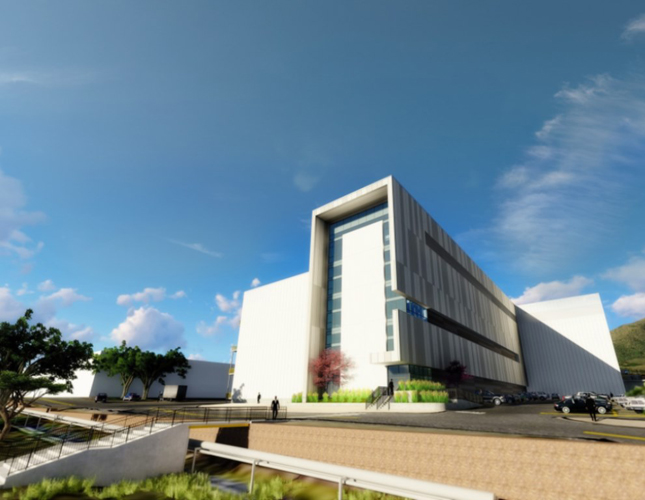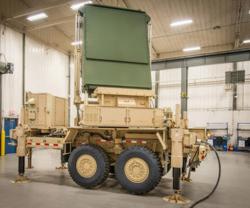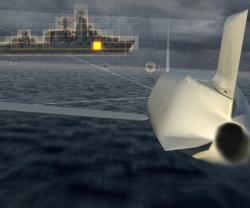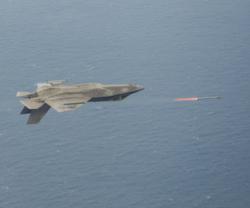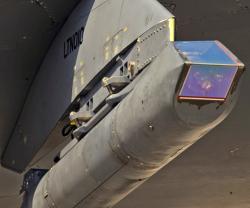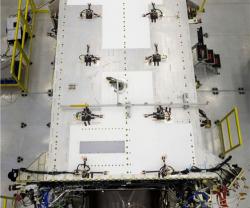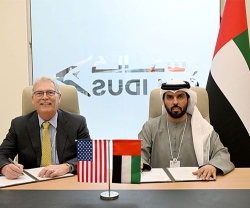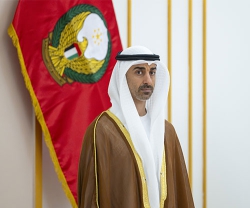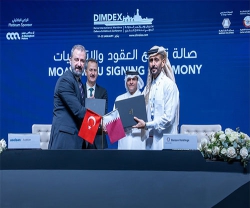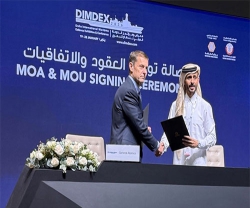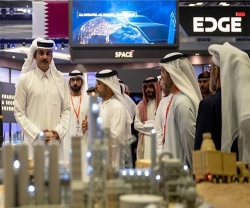Preliminary construction is underway on a new, $350 million Lockheed Martin facility that will produce next-generation satellites. Located on the company’s Waterton Canyon campus near Denver, the new facility is the latest step in an ongoing transformation, infused with innovation to provide future missions at reduced cost and cycle time.
Lockheed Martin’s new satellite integration facility will make its Waterton Canyon campus one of the largest space technology centers in the country, with 3.5 million square feet of research, engineering, test and office space.
The new Gateway Center, slated for completion in 2020, includes a state-of-the-art high bay clean room capable of simultaneously building a spectrum of satellites from micro to macro. The facility’s paperless, digitally-enabled production environment incorporates rapidly-reconfigurable production lines and advanced test capability. It includes an expansive thermal vacuum chamber to simulate the harsh environment of space, an anechoic chamber for highly perceptive testing of sensors and communications systems, and an advanced test operations and analysis center. The Gateway Center will be certified to security standards required to support vital national security missions.
“This is our factory of the future: agile, efficient and packed with innovations. We'll be able to build satellites that communicate with front-line troops, explore other planets, and support unique missions,” said Rick Ambrose, Executive Vice President of Lockheed Martin Space Systems.
“You could fit the Space Shuttle in the high bay with room to spare. That kind of size and versatility means we'll be able to maximize economies of scale, and with our entire test chambers under one roof, we can streamline and speed production,” he added.
Lockheed Martin expects the construction effort to employ a total of 1,500 contractors during the three-year construction phase. Lockheed Martin has added more than 750 jobs to its Colorado workforce since 2014, and currently has about 350 job openings in the Denver area alone. This building will accommodate that recent growth and new future projects. State and local officials in Colorado have helped strengthen the aerospace industry and foster an environment that helps aerospace companies thrive and grow.
“Aerospace is an engine of innovation and growth for America, and we're investing in infrastructure and technology to help strengthen the nation's leadership in military and commercial space and scientific exploration,” Ambrose explained.
“We're transforming every aspect of our operations to help our customers stay ahead of a rapidly-changing landscape. The Gateway Center, coupled with advancements in 3D printing, virtual reality design and smart payloads, will deliver game-changing innovations while saving our customers time and money,” he concluded.
Lockheed Martin’s Waterton Canyon campus has been a hub of space innovation since the 1950s, with more than 4,000 employees and a wide range of industry-leading design, manufacturing and test facilities on site. Spacecraft currently in production at the site include the Air Force's GPS III satellites, NASA’s InSight Mars lander, NOAA’s GOES-R Series weather satellites, and commercial communications satellites.
Companies selected by Lockheed Martin for the project include Hensel Phelps as the general contractor, Matrix PDM Engineering and Dynavac for thermal vacuum chamber design and construction, and ETS-Lindgren for anechoic chamber design and construction.
Headquartered in Bethesda, Maryland, Lockheed Martin is a global security and aerospace company that employs approximately 97,000 people worldwide and is principally engaged in the research, design, development, manufacture, integration and sustainment of advanced technology systems, products and services.

